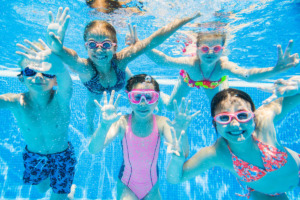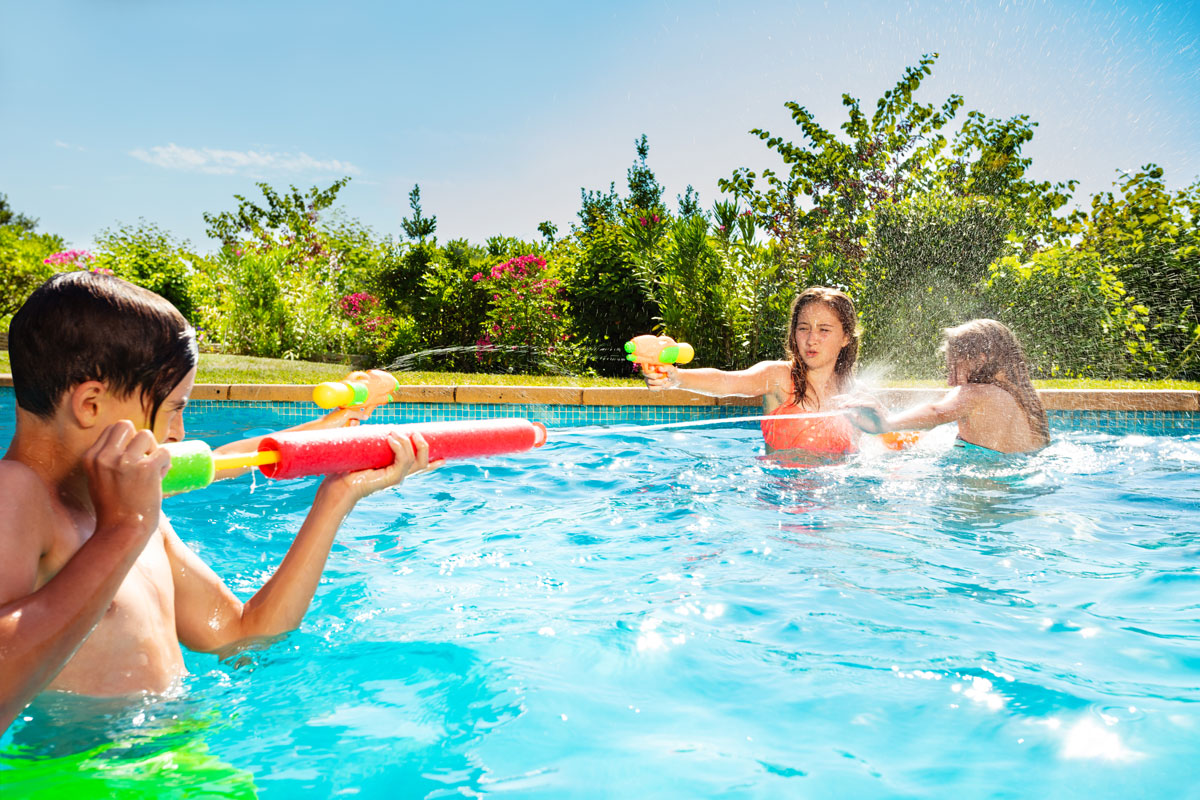If you can pry your kids from their phones for more than a split second this summer, they might discover much better ways to use their time off from school. One of those ways is swimming, an especially welcome form of recreation given Florida’s famously hot summers.
In Florida, one is never too far from one of its coasts to spend a day at the beach. The Sunshine State also leads the nation in the number of privately-owned swimming pools. Thus, the pleasure of a cool dip on a hot day is often as close as your own backyard.
Having more than its fair share of beaches, rivers, lakes, ponds, and pools probably explains why Florida is also a leader in accidental drownings. According to the CDC, drownings claim more children between the ages of 1 and 4 nationwide than any other cause of death; and is the second leading cause of death in children 5-14.
Of course, young children needn’t be plied with such grim statistics as an incentive to learn how to swim. Instead, these scary numbers are intended to remind parents that even the most experienced young swimmer should never be left unattended in the family pool. Drownings happen faster than most people realize. When your kids are in the pool, you should always keep your eyes on them and never be more than a few feet away.
What children do need to know is that swimming is an essential life skill, especially in a state where water is such an integral part of our landscape and lifestyle. They especially need to know that the inability to swim means they will also be unable to surf, paddleboard, raft, kayak, deep-sea dive, fish, or go snorkeling, just to name a few of the activities for which the ability to swim is an absolute prerequisite. Peer pressure can move mountains.
But there are less pressurized tactics that can make learning how to swim more fun and rewarding for your child. These include pool games, friendly competitions, and aquatic exercises.
 Pool games
Pool games
In general, pool games help new or reluctant swimmers feel more excited about getting into the water and enable them to build camaraderie with other kids who are newbie swimmers.
Rarely have I seen two or more kids enter a swimming pool that a cannonball contest or improvised game of water tag didn’t break out within minutes. In such situations, your job as both parent and lifeguard is to simply allow the play to develop, making sure the games being played are safe, constructive, age-appropriate, and inclusive.
If improvised games are slow to develop, a few you might want to suggest include water tag, diving for sunken treasure, underwater telephone and the old classic Marco Polo. You can find many more games by searching online. Disguised as play, most are designed to enhance your child’s swimming skills.
Props you should keep on hand to promote safe and constructive pool play include colorful floats, pool noodles, Styrofoam kickboards and a beach ball or two. Think of these as security blankets that offer flotation support for young new swimmers while they learn how to propel themselves forward.
Friendly competitions
With insight and a little creativity, you can turn just about any pool activity into a friendly competition. It’s up to you to read the room and assess each child’s level of experience and maturity in order to organize the appropriate events. Here are a few examples of swimming competitions (and more games) that can be adapted to any situation.
In general, competitions allow kids to sharpen both their aquatic and interpersonal skills by competing among friends in the stress-free setting of a backyard pool. In the process, they are apt to learn the value of teamwork, self-discipline, cooperation, and good sportsmanship. Moreover, participating in these informal competitions often encourages young swimmers to seek more organized levels of competitive swimming at their high school, college, or community swim club (e.g., YMCA).
Aquatic Exercises
Exercising in water is a famously low-impact activity that can provide a substantial aerobic workout without putting the same pressure on bones, joints, and muscles that typically occurs with land-based workouts. Water also exerts a natural form of resistance, that can strengthen young muscles with frequent repetitions.
By default, kids splashing around a pool together are almost always exercising. Indeed, many pool games and competitions are little more than aquatic workouts in disguise. Multiply this by the number of hours they typically spend playing in the pool each day and it all adds up to quite the weekly regimen. I get exhausted just watching.
Aquatic exercises for kids are more about sharpening their balance, coordination, and swimming skills than it is about providing an aerobic workout as if they were in a room full of tired, out-of-shape adults like me.


Comments